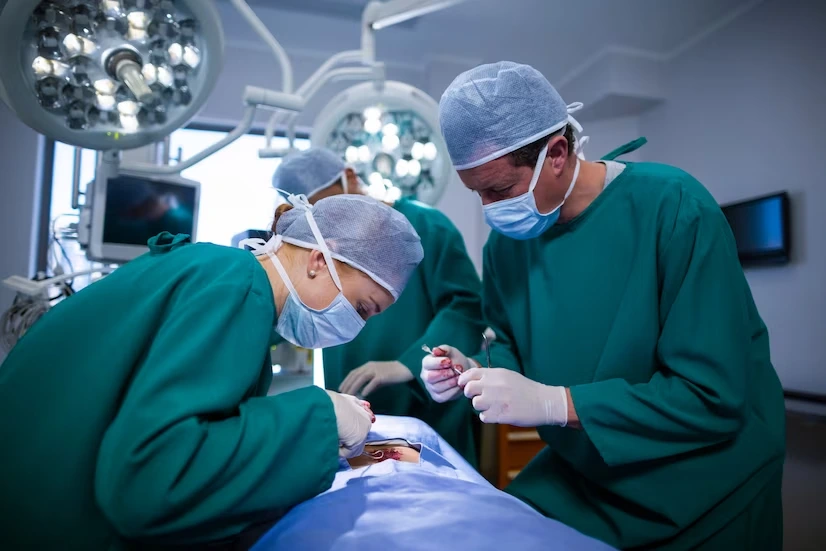Hernias, particularly inguinal hernias, are a common medical condition where an organ or tissue pushes through a weak spot in the surrounding muscle.
While hernias are often considered a physical issue, recent studies have raised concerns about their impact on reproductive health.
This article explores how hernias, especially in men and women, can directly and indirectly affect fertility.
Table of Contents
ToggleHernia’s Direct Impact on Fertility
For men, hernias, especially inguinal hernias, can have a direct influence on male fertility. The condition may interfere with sperm production or obstruct sperm passage due to pressure exerted on the reproductive organs.
This may lead to a decrease in sperm count and quality, potentially contributing to infertility issues.
For women, hernias may have a lesser direct impact but could affect surrounding organs like the fallopian tubes or ovaries, depending on the type and location of the hernia.
This could lead to discomfort and, in some cases, complications that might indirectly affect female fertility.
Hernia’s Indirect Impact on Fertility
Hernias can also have an indirect impact on fertility. Chronic pain or discomfort from a hernia might lead to decreased sexual activity, which may reduce the chances of conception.
Furthermore, hernia repair surgeries, while necessary, can sometimes result in complications that affect fertility, especially if the surgery impacts the reproductive organs. it’s better to choose a specialist hernia surgeon , if you are looking for hernia repair.
In men, for example, surgical treatment of inguinal hernias has been linked to testicular damage, which can affect fertility.
Likewise, some medications prescribed for hernia-related pain may have side effects that influence hormonal balance and sperm production.
Research Papers on Henria
The research paper from pubmed titled “Male infertility following inguinal hernia repair” provides data from examination of the potential impact of inguinal hernia repair on male fertility. It highlights that sperm motility may be affected in the immediate postoperative period, especially after laparoscopic or open hernia repair with mesh.
In rare cases, conditions like obstructive azoospermia were reported. The study emphasizes the need for informed consent regarding fertility risks, particularly for men planning to have children.
How to Prevent Hernia Effects on Fertility
To prevent hernia-related fertility issues, early diagnosis and treatment are essential. Individuals should seek medical advice at the onset of hernia symptoms to avoid complications.
Post-surgical care, along with regular check-ups, can also help mitigate the risks associated with hernia surgery on fertility. Maintaining a healthy lifestyle, managing weight, and avoiding heavy lifting can further reduce the risk of hernias and their potential impact on reproductive health.
Conclusion
Hernias, especially inguinal hernias, can have both direct and indirect impacts on fertility.
In men, hernias may affect sperm production by putting pressure on the reproductive organs, potentially leading to infertility. Hernia repair surgeries, while effective, may occasionally result in complications like obstructive azoospermia, though these risks are relatively low.
While women experience hernias less commonly than men, certain types can affect nearby reproductive organs. Early diagnosis, treatment, and post-surgical care are crucial to minimizing any potential fertility-related complications.
Dr. K. Amilthan MBBS., MS., FMAS., FALS.
Heal Your Hernia Now:
- 20+ Years of Experience
- 1,000+ Surgeries
Your Journey to Wellness Begins with us.
FAQ's
Yes, inguinal hernias can cause infertility, especially in men. If the hernia affects the blood flow to the testicles or compresses the spermatic cord, it may impact sperm production and lead to fertility issues. Prompt treatment of the hernia can help avoid potential complications related to fertility.
If you have a hernia, it is important to consult with your doctor before getting pregnant. Pregnancy can increase pressure on the abdominal area, potentially worsening the hernia. Your doctor may recommend treatment or surgery before pregnancy to prevent complications.
Yes, a hernia, particularly an inguinal hernia, can potentially cause azoospermia in rare cases. If the hernia compresses the spermatic cord or affects blood flow to the testicles, it may lead to issues with sperm production. Proper diagnosis and treatment are necessary to address this condition.

Dr. Amilthan
Dr. Amilthan is a renowned laparoscopic hernia surgeon based in Chennai, with over 20 years of experience in general surgery. He completed his MBBS and MS in General Surgery at Kilpauk Medical College and Government Royapettah Hospital in Chennai.
- All Posts
- Hernia Blog

Which Doctor should you consult for Hernia? You can Consult a general surgeon or a hernia specialist for evaluation and...

A hernia occurs when an organ or any other part of your body pushes through the muscle and surrounding tissue...

An inguinal hernia occurs when the organs push through and bulge against the weak muscles of the abdomen. An effective...

